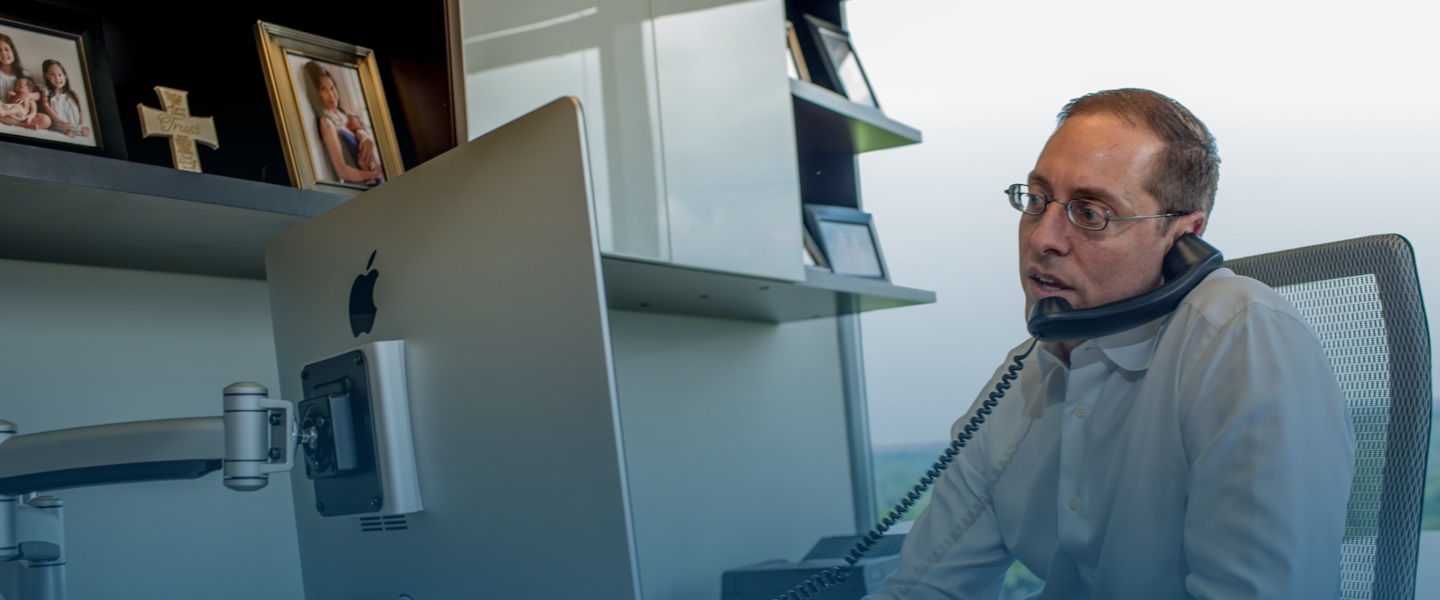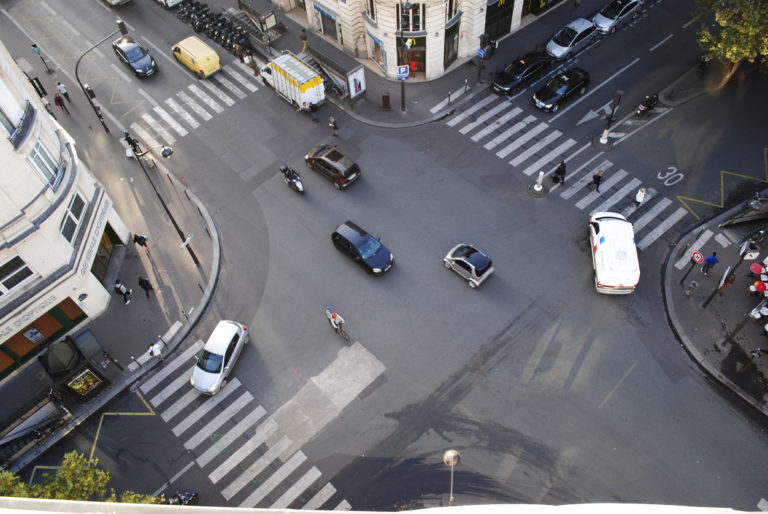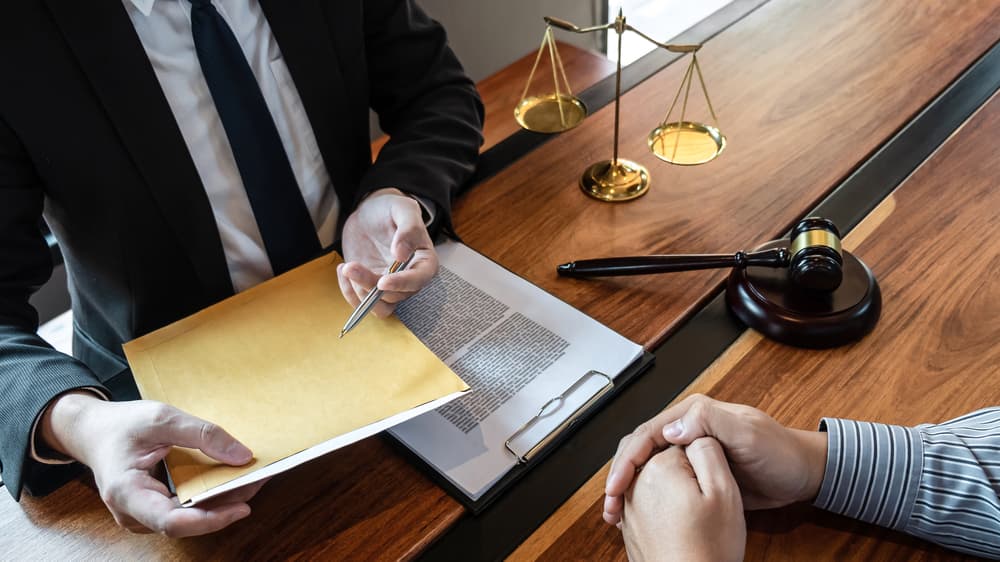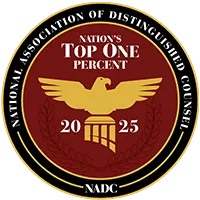
According to the Federal Highway Administration, about 25% of U.S. traffic fatalities and about half of all traffic injuries each year are attributed to intersections. In a high-traffic city like Atlanta, where major intersections like Five Points and the junction of North Avenue and Spring Street see heavy vehicle flow, accidents occur far too often and can have serious, life-changing consequences. If you have been hurt in an intersection accident, you need an Atlanta intersection crash lawyer who understands the intricate liability issues and the aggressive tactics insurance companies often use to minimize or deny claims.
At Hasner Law, our attorneys bring over 80 years of combined experience advocating for injured clients across Georgia, with over $1 billion recovered in verdicts and settlements. We understand the complexities involved in intersection crash cases, from determining fault to countering insurance company strategies, and we are committed to helping you pursue the full compensation you deserve.
Your consultation is always free, and you will not pay any legal fees unless we successfully recover compensation on your behalf. To discuss your case with a dedicated attorney, call us today at 678-888-HURT (4878).
Atlanta Intersection Accident Guide
- How Hasner Law Handles Atlanta Intersection Crash Cases
- Understanding Georgia Traffic Laws at Intersections
- Common Types of Atlanta Intersection Crashes
- Severe Injuries Caused by Atlanta Intersection Crashes
- High-Risk Atlanta Intersections You Should Know About
- Determining Fault in Atlanta Intersection Crashes
- Who Can Be Held Liable in an Intersection Crash in Georgia?
- Fighting Insurance Company Tactics in Intersection Cases
- Compensation Available for Atlanta Intersection Crash Victims
- How Long Do You Have to File an Intersection Crash Claim in Georgia?
- Hold Negligent Drivers Accountable After a Crash
How Hasner Law Handles Atlanta Intersection Crash Cases

Intersection accidents present unique legal challenges because multiple drivers, traffic signals, and right-of-way rules create complex liability questions that insurance companies exploit to avoid paying fair compensation. At Hasner Law, we stand up to insurance companies that often try to blame victims for crashes caused by other drivers’ negligence.
Our Atlanta intersection crash attorneys understand that these cases require immediate investigation because evidence disappears quickly while witness memories fade. Traffic signal timing records get overwritten, security camera footage gets deleted, and accident scenes get cleared before key evidence can be captured and preserved.
Why Fast Evidence Collection Matters After an Intersection Crash
We act quickly when intersection crashes occur because valuable evidence has a short lifespan in busy Atlanta intersections. Our investigation team moves immediately to preserve traffic signal timing data, security camera footage from nearby businesses, witness statements while memories remain fresh, and physical evidence before cleanup crews remove it.
This immediate response often uncovers evidence that insurance companies hope disappears, such as signal timing malfunctions, visibility obstructions, or maintenance issues that contributed to your accident. We work with accident reconstruction specialists who analyze vehicle damage patterns, skid marks, and debris fields to establish exactly how your intersection crash occurred.
How We Fight Back Against Insurance Company Blame Tactics
Insurance companies approach intersection crashes with predetermined strategies designed to shift blame to victims or other parties. They often argue that you violated traffic signals, failed to yield properly, or contributed to the accident through inattentive driving, even when evidence clearly shows the other driver’s negligence caused your injuries.
Our team counters these tactics with thorough preparation and aggressive advocacy that forces insurance companies to acknowledge the true facts of your case. We compile comprehensive evidence packages that demonstrate other drivers’ violations while documenting the full extent of your injuries and their impact on your life.
Understanding Georgia Traffic Laws at Intersections

Georgia’s intersection traffic laws create a framework of driver responsibilities designed to prevent accidents, but violations of these laws occur frequently throughout Atlanta’s busy street system. Understanding these regulations helps establish liability when intersection crashes occur due to other drivers’ negligence.
The Official Code of Georgia Annotated § 40-6-71 governs right-of-way at intersections, requiring drivers to yield to vehicles already in intersections and to pedestrians in crosswalks. These fundamental rules become complicated when traffic signals malfunction or when drivers make incorrect assumptions about other vehicles’ intentions.
Red Light and Traffic Signal Violations in Georgia Crashes
Red light violations represent one of the most common causes of intersection crashes throughout Atlanta. Georgia law under O.C.G.A. § 40-6-21 requires complete stops at red lights and prohibits entering intersections when signals show red or are about to turn red.
Many intersection crashes occur when drivers attempt to “beat” yellow lights or run red lights entirely. These violations often result in high-speed side-impact collisions that cause severe injuries to occupants of vehicles with legal right-of-way through intersections.
Left Turn Liability and Right-of-Way Rules
Left-turning drivers bear special responsibilities at intersections because they must yield to oncoming traffic before completing their turns. Georgia law places the burden on left-turning drivers to verify that intersections are clear before proceeding, making them liable for most collisions with oncoming vehicles.
However, exceptions exist when oncoming drivers violate traffic signals or speed excessively through intersections. These cases demand a close look at signal timing, vehicle speed, and driver behavior to determine fault accurately.
Common Types of Atlanta Intersection Crashes
Atlanta’s intersection design and traffic patterns create specific types of accidents that occur regularly throughout the metropolitan area. Understanding these crash patterns helps establish liability and build stronger compensation claims for injured victims.
- T-Bone and Side-Impact Collisions: Among the most dangerous intersection accidents, these crashes typically result from red-light running or failure to yield. Areas like Peachtree Street and North Avenue are hotspots during rush hours. Side impacts often cause serious injuries like traumatic brain injuries, spinal damage, or multiple fractures.
- Head-On Collisions: These often occur from improper left turns or wrong-way entries, particularly at complex intersections like Five Points or highway interchanges. Though less frequent, head-on crashes usually result in catastrophic or fatal injuries due to the force of impact.
- Rear-End Collisions: Common at traffic signals when drivers follow too closely or become distracted. Atlanta’s aggressive driving culture and sudden stops at intersections increase the risk of these accidents, which can still cause significant harm.
Identifying the type and cause of an intersection crash is essential for establishing fault and pursuing appropriate legal remedies.
Severe Injuries Caused by Atlanta Intersection Crashes
Intersection crashes often result in severe injuries due to the high speeds and impact angles involved in these collisions. Understanding common injury patterns helps establish appropriate compensation demands for victims.
- Traumatic Brain Injuries: Sudden acceleration and deceleration frequently cause TBIs, from concussions to long-term cognitive impairment. Side impacts increase risk as occupants may strike windows or doors. Treatment is often expensive, and insurers may dispute ongoing care needs. Recovery can require years of rehabilitation, with some victims experiencing permanent deficits.
- Spinal Cord Injuries and Paralysis: Intersection crashes can compress or sever the spinal cord, resulting in partial or total paralysis. T-bone collisions are especially hazardous due to lateral forces. These injuries require lifelong medical care and affect mobility, independence, and employment. Long-term financial planning must account for ongoing medical and assistive needs.
- Multiple Fractures and Orthopedic Injuries: High-impact crashes often result in multiple fractures, requiring surgeries and extended rehab. Many victims face lasting physical limitations that affect daily living and work. Recovery can be lengthy, with some injuries leading to permanent disability.
Documenting the full extent of injuries is essential to support claims and justify long-term financial recovery.
High-Risk Atlanta Intersections You Should Know About
Several intersections in Atlanta have elevated crash rates due to design flaws, heavy traffic, and limited visibility. Recognizing these danger zones is key to both accident prevention and liability analysis.
Downtown Atlanta’s Most Dangerous Intersections
Downtown Atlanta contains some of the city’s most hazardous intersections. Peachtree Street and North Avenue see frequent accidents involving unfamiliar drivers and aggressive commuters. Five Points is another high-risk area where complex street layouts, heavy pedestrian activity, and traffic congestion increase the likelihood of collisions.
Highway Interchange Intersections
Intersections near the I-75/I-85 downtown connector pose serious risks where fast-moving highway traffic meets slower surface roads. These areas often lead to severe crashes due to speed differences, multiple turn options, and drivers unfamiliar with local routes.
Suburban Intersection Accident Risks in Atlanta’s Shopping Areas
Intersections near Lenox Square, Perimeter Mall, and other shopping centers experience high crash volumes. Drivers focused on parking or finding businesses often overlook signals or surrounding vehicles, leading to frequent rear-end and turning accidents.
Determining Fault in Atlanta Intersection Crashes
Establishing liability in intersection crashes requires thorough analysis of traffic laws, signal timing, and driver actions leading up to collisions. Georgia’s comparative negligence law adds complexity by allowing recovery even when victims bear partial responsibility for accidents.
Using Traffic Signal Data to Prove Fault in Georgia Crashes
Traffic signal timing records provide vital evidence in intersection crash cases because they establish whether drivers had legal right-of-way when accidents occurred. We work with traffic engineers who analyze signal timing data and intersection design to identify factors that may have contributed to your accident.
Many intersection crashes involve disputes about signal timing or whether drivers entered intersections legally. Electronic records from traffic signal controllers often provide definitive proof about light timing that resolves these disputes in favor of injured victims.
Witness Testimony and Surveillance Footage
Witness accounts provide powerful evidence in intersection crash cases, particularly when multiple people observed the same sequence of events leading to collisions. We interview witnesses immediately while their memories remain fresh and accurate, obtaining detailed statements about driver behavior and traffic signal compliance.
Security cameras from nearby businesses frequently capture intersection crashes from angles that clearly show which drivers violated traffic laws. We move quickly to preserve this footage before it gets overwritten or deleted according to business retention policies.
Who Can Be Held Liable in an Intersection Crash in Georgia?
Intersection crashes often involve several parties who may share responsibility for accidents and resulting injuries. Identifying all liable parties maximizes potential compensation by accessing multiple insurance policies and assets.
When Cities or Counties Are Liable for Intersection Accidents
Municipal governments may bear liability when intersection crashes result from poor design, inadequate maintenance, or malfunctioning traffic signals. Atlanta and surrounding municipalities have responsibilities to maintain safe intersection conditions and properly functioning traffic control devices.
Cities and counties may be liable when:
- Signal timing problems create dangerous conditions or driver confusion
- Overgrown vegetation or poorly placed signs obstruct visibility
- Road surface defects affect vehicle control during turns
- Inadequate signage fails to warn of unusual intersection layouts
Government liability claims require specialized knowledge of sovereign immunity laws and specific claim procedures that differ from standard insurance claims.
When Vehicle Defects Contribute to Intersection Collisions

Intersection crashes may involve liability from vehicle manufacturers when defective components contribute to accidents or increase injury severity. Brake failures, steering problems, or airbag malfunctions can transform minor intersection incidents into serious crashes with severe injuries.
These product liability claims often provide access to substantial compensation resources beyond standard auto insurance coverage, though they require extensive investigation and technical analysis to prove defects caused or contributed to your injuries.
Fighting Insurance Company Tactics in Intersection Cases
Insurance companies use sophisticated strategies to minimize liability in intersection crash cases, often exploiting the complexity of these accidents to deny or reduce legitimate claims. Understanding these tactics helps protect your rights during the claims process.
Understanding Comparative Fault in Georgia Intersection Accidents
Insurance companies routinely argue that intersection crash victims contributed to their own injuries through various actions like failing to look both ways, proceeding too quickly through intersections, or not maintaining proper following distances. Georgia’s comparative negligence law allows these arguments even when other drivers clearly violated traffic laws.
These tactics are designed to shift blame to victims and reduce what insurers have to pay. Our aggressive advocacy counters these arguments with compelling evidence that demonstrates other drivers’ primary responsibility for causing your injuries.
Disputes Over Signal Timing and Fault in Intersection Accidents
Insurance companies often dispute basic facts about intersection crashes, claiming their insured drivers had green lights or right-of-way when evidence suggests otherwise. They may argue that signal timing records are inaccurate or that witness testimony is unreliable.
We counter these tactics by obtaining official traffic signal records, hiring accident reconstruction specialists, and presenting comprehensive evidence packages that establish clear liability for your intersection crash injuries.
Compensation Available for Atlanta Intersection Crash Victims

Georgia law allows intersection crash victims to recover comprehensive compensation for all losses resulting from accidents caused by other drivers’ negligence. The severity of injuries common in intersection crashes often justifies substantial damage awards.
Economic damages compensate for measurable financial losses including medical expenses from emergency treatment through future rehabilitation needs, lost wages during recovery periods, reduced earning capacity due to permanent disabilities, and costs for assistive equipment and home modifications.
Non-economic damages address intangible losses like physical pain and suffering from injuries and treatments, emotional distress from accident trauma, loss of life enjoyment due to activity limitations, and impact on family relationships and quality of life.
Can You Seek Punitive Damages in an Atlanta Intersection Crash?
Georgia law allows punitive damages when defendants’ conduct shows willful misconduct, malice, or recklessness under O.C.G.A. § 51-12-5.1. Intersection crashes involving drunk driving, excessive speeding, or deliberate traffic law violations may justify these additional damages.
Punitive damages serve to punish particularly dangerous behavior while deterring similar conduct by other drivers. These awards may significantly increase total compensation while sending clear messages about the consequences of reckless driving through Atlanta intersections.
How Long Do You Have to File an Intersection Crash Claim in Georgia?
Georgia’s statute of limitations requires filing intersection crash lawsuits within two years of the accident date under O.C.G.A. § 9-3-33. However, the complexity of intersection crash cases makes early legal consultation important for protecting your rights and preserving evidence.
Evidence preservation becomes particularly important because intersection conditions change frequently as cities modify signal timing, add turn lanes, or alter traffic patterns. Physical evidence from accident scenes may disappear during routine maintenance or construction projects.
Acting quickly allows thorough investigation while witnesses remain available and their memories stay fresh. Our immediate response often uncovers evidence that becomes unavailable as time passes and intersection conditions change.
Hold Negligent Drivers Accountable After a Crash

An intersection crash can change your life in seconds, with effects that last for years. Whether caused by a red-light runner at Piedmont and Peachtree, a distracted driver who failed to yield at North Avenue and Spring Street, or a speeding motorist at Five Points, these accidents often stem from violations of basic traffic laws meant to keep us safe.
At Hasner Law, we’ve spent decades representing intersection crash victims across Atlanta and Georgia. We understand the laws that govern intersection safety, the strategies insurers use to avoid paying full compensation, and how to build strong cases that prove fault and maximize recovery.
Contact the experienced Atlanta intersection crash lawyers at Hasner Law today at 678-888-HURT (4878) for your free consultation. Your fight for justice starts now.
Hasner Law: Atlanta Injury & Workers’ Compensation Attorneys
2839 Paces Ferry Rd SE #1050
Atlanta, GA 30339
P: (678) 888-4878
